Qualitative Research Design: An Interactive Approach provides researchers and students with a user-friendly, step-by-step guide to planning qualitative research. It shows how the components of design interact with each other, and provides a strategy for creating coherent and workable relationships among these design components, highlighting key design issues. Written in an informal, jargon-free style, the new Third Edition incorporates examples and hands-on exercises.
Qualitative Research Design
KSh 7,700.00
Qualitative Research Design: An Interactive Approach provides researchers and students with a user-friendly, step-by-step guide to planning qualitative research. It shows how the components of design interact with each other, and provides a strategy for creating coherent and workable relationships among these design components, highlighting key design issues. Written in an informal, jargon-free style, the new Third Edition incorporates examples and hands-on exercises.
Related products
-
Textbook of Global Child Health, 2nd Edition
KSh 9,562.00The second edition of the American Academy of Pediatrics Textbook of Global Child Health is pleased to contribute toward international efforts to improve the lives of the next generation. This new edition will help prepare and support child health professionals as they join international efforts on behalf of children.
A large multinational team of authors has joined together to produce the 2nd edition of this award-winning textbook, which focuses on 3 key areas:
- Foundational understanding of societal factors related to health and disease
- Appropriate care of children traveling internationally
- Clinical management of children in resource-limited areas
New in the 2nd edition:
- 29 updated chapters and sections
- New chapters on cardiology, neurologic disorders, nephrology, emergency medicine and critical care, and hematology/oncology
-
Handbook of Agricultural Entomology
KSh 16,380.00Handbook of Agricultural Entomology by Helmut van Emden is a landmark publication for students and practitioners of entomology applied to agriculture and horticulture. It can be used as a reference and as a general textbook.
The book opens with a general introduction to entomology and includes coverage of the major insects (and mites) that cause harm to crops, livestock and humans. The important beneficial species are also included. Organisms are described in a classification of insect Orders and Families. The emphasis is on morphological characters of major taxonomic divisions, “spot characters” for the recognition of Families, and the life histories, damage symptoms and economic importance of the various pest species.
The book is beautifully illustrated in full colour with more than 400 figures showing both the organisms and the damage caused to plants with diagnostic characters indicated by arrows. Coverage is world-wide and includes much material stemming from the vast personal experience of the author.
-
Participation in Project Preparation: Lessons from World Bank-Assisted Projects in India (World Bank Discussion Papers)
KSh 1,000.00This study analyzes the extent to which the India program is meeting the World Bank’s objective of mainstreaming participatory approaches in project preparation and design. It includes ten projects in which participation was an overall project objective. These projects provided “good practice” lessons from a variety of social and natural resource management sectors. -
So…You Think You Know The Bible? Mass Market Paperback
KSh 495.00What two people was time altered for? What man got his head nailed to the ground? What two Old Testament characters never died? If you like Bible trivia, you’ll love So. . .You Think You Know the Bible? Packed with more than 700 mind-stretching questions-no fluffy stuff here!-this brand-new trivia challenge will fascinate and entertain readers for hours. Thirty categories of 25 questions each-including “Who’s Who,” “Biblical Geography,” and “We Dare You to Answer These!”-are accompanied by a scoring system to track your success. More great Bible trivia from Barbour!
-
El Aserradero Lugubre / The Miserable Mill (Series Of Unfortunate Events)
KSh 150.00El Aserradero Lugubre / The Miserable Mill (Series Of Unfortunate Events)
-
I Have Seen the Promised Land: A Utopian Novella
KSh 395.00This book, a utopian novella set in the year 2026, is part of a trilogy along with The History of the Culture of War and World Peace through the Town Hall: A Strategy for the Global Movement for a Culture of Peace. Together they put forward a comprehensive and feasible plan to achieve world peace. They are based on the author’s responsibility for the United Nations International Year for the Culture of Peace (2000), the Manifesto 2000 signed by 75 million people, and the United Nations Declaration and Programme of Action on a Culture of Peace. This novella foresees the coming collapse of the global economy and nation states as an opportunity to refound the United Nations on the basis of those who understand the need for a culture of peace: individuals, civil society organizations and local governments. It provides an imaginative and personalized account of how the world has come to a culture of peace and explores the various contradictions involved.
-
The Ethnographic Imagination
KSh 1,200.00In this book Paul Willis, a renowned sociologist and ethnographer, aims to renew and develop the ethnographic craft across the disciplines. Drawing from numerous examples of his own past and current work, he shows that ethnographic practice and the ethnographic imagination are vital to understanding the creativity and irreducibility of experience in all aspects of social and cultural practice.
Willis argues that ethnography plays a vital role in constituting ‘sensuousness’ in textual, methodological, and substantive ways, but it can do this only through the deployment of an associated theoretical imagination which cannot be found simply there in the field. He presents a bold and incisive ethnographically oriented view of the world, emphasizing the need for a deep-running social but also aesthetic sensibility. In doing so he brings new insights to the understanding of human action and its dialectical relation to social and symbolic structures. He makes original contributions to the understanding of the contemporary human uses of objects, artefacts and communicative forms, presenting a new analysis of commodity fetishism as central to consumption and to the wider social relations of contemporary societies. He also utilizes his perspective to further the understanding of the contemporary crisis in masculinity and to cast new light on various lived everyday cultures – at school, on the dole, on the street, in the Mall, in front of TV, in the dance club.
This book will be essential reading for all those involved in planning or contemplating ethnographic fieldwork and for those interested in the contributions it can make to the social sciences and humanities.
-
21 Lessons for The 21St Century Paperback
KSh 1,695.00The future is here. Learn to live in it.
In twenty-one bite-sized lessons, Yuval Noah Harari explores what it means to be human in an age of bewilderment.
How can we protect ourselves from nuclear war, ecological cataclysms and technological disruptions? What can we do about the epidemic of fake news or the threat of terrorism? What should we teach our children?
Yuval Noah Harari takes us on a thrilling journey through today’s most urgent issues. The golden thread running through his exhilarating new book is the challenge of maintaining our collective and individual focus in the face of constant and disorienting change. Are we still capable of understanding the world we have created?
‘Fascinating… compelling… [Harari] has teed up a crucial global conversation about how to take on the problems of the 21st century’ Bill Gates, New York Times
‘Truly mind-expanding… Ultra-topical’ Guardian
‘21 Lessons is, simply put, a crucial book’ Adam Kay

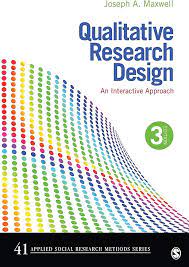
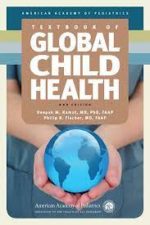

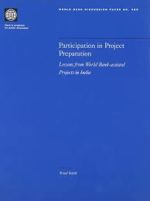



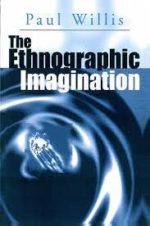
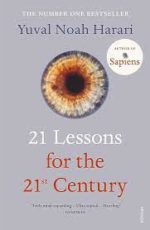
Be the first to review “Qualitative Research Design”